
Myanmar: Aung San Suu Kyi detained by military in apparent coup
Myanmar's powerful military detained the country's leader in an overnight raid, the ruling National League for Democracy said on Monday. Other senior leaders from the party have also been "taken" in an apparent coup.
"I want to tell our people not to respond rashly and I want them to act according to the law," said spokesman Myo Nyunt, revealing that the 75-year-old Nobel Peace Prize winner Suu Kyi, President Win Myint and other leaders were now in custody.
He added that he also expected to be taken.
"With the situation we see happening now, we have to assume that the military is staging a coup," he added.
National TV goes off the air
Hours later, state-run broadcaster MRTV said it was unable to broadcast as it was facing technical issues.
"Due to current communication difficulties we'd like to respectfully inform you that the regular programmes of MRTV and Myanmar Radio cannot be broadcast," Myanmar Radio and Television said in a Facebook post.
A witness told Reuters that soldiers had been deployed outside the city hall in Yangon, the the country's biggest city.
Internet connections and mobile services in Yangon were also severely disrupted early Monday, with Myanmar's national internet connectivity falling to 75% of regular levels early on Monday, according to internet monitoring service NetBlocks.
"The telecommunication disruptions, beginning approximately 3:00 am Monday morning local time, have significant subnational impact including the capital, and are likely to limit coverage of events as they take place," Netblocks said in a statement.
This comes amidst escalating tensions between Myanmar’s civilian government and its army, which had been at the helm of governance for decades.
Australia slams attempt to 'seize control'
Australia urged Myanmar's military to release all the detained leaders, adding that the army was "once again seeking to seize control."
"We call on the military to respect the rule of law, to resolve disputes through lawful mechanisms and to release immediately all civilian leaders and others who have been detained unlawfully," Foreign Minister Marise Payne said.
A military spokesman was unavailable for comments on Monday.
Last week, however, Myanmar's military commander-in-chief sparked fears of an impending coup.
The army's commander-in-chief, General Min Aung Hlaing told military personnel on Wednesday that it may be "necessary" to revoke the constitution if it was not abided by.
Political tensions escalated when a military spokesman warned the armed forces could "take action" if concerns about election irregularities were not addressed.
However, in a statement on Saturday, the military — officially named the Tatmadaw in Burmese — appeared to backtrack on its rhetoric, saying that the general's remarks had been misinterpreted.
"The Tatmadaw is protecting the 2008 constitution and will act according to the law," it said. "Some organizations and media assumed what they want and wrote as Tatmadaw will abolish the constitution."
'Consequences will be dire'
Aung San Suu Kyi played a key role in the 1988 protests against the military junta, and ended up spending many years under house arrest before running for parliament in 2012. Since taking power in 2016, however, activists and diplomats across the world slammed the leader for her apparent subservience to the military-led regime.
"Ten years after the transition to democracy started, the country is facing a huge setback with the Tatmadaw rounding up elected political leaders including Aung San Suu Kyi and other National League for Democracy (NLD) senior members," Romain Caillaud, an associate fellow with the Myanmar Studies Program at the Institute of Southeast Asian Studies in Singapore, told DW.
Caillaud compared the Monday events with the military crackdown against a student-led uprising in 1988. The push for democracy that year also gave rise to the ruling NLD.
"The consequences will be dire," he said, referring to the ongoing crisis. "This is a different world from 1988, with globalization, social media, COVID-19, a new US administration, and China's infrastructure ambition. Backlash against the Tatmadaw will be intense.
He added that the Tatmadaw's motivations for the move are "difficult to grasp," but could be due to "a breakdown in trust and communication" between the military and NLD, frustration with the management of ongoing conflict in Rakhine State, and questions over the 2008 constitution.
Aung San Suu Kyi: From freedom fighter to pariah
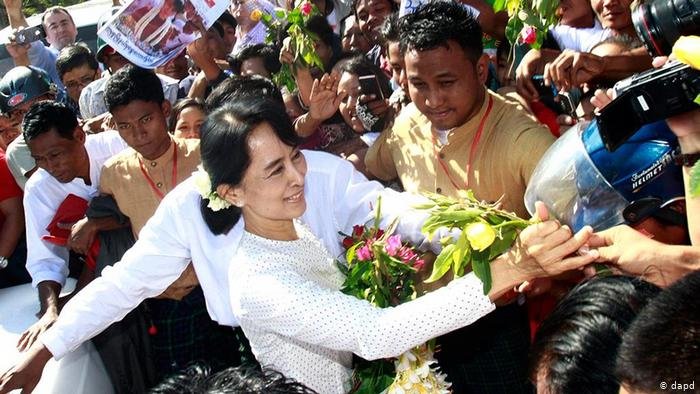
Darling of democracy
The daughter of Myanmar's assassinated founding father, Aung San Suu Kyi returned to her home country in the 1980s after studying and starting a family in England. She became a key figure in the 1988 uprisings against the country's military dictatorship. Her National League for Democracy (NLD) was victorious in 1990 elections but the government refused to honor the vote.
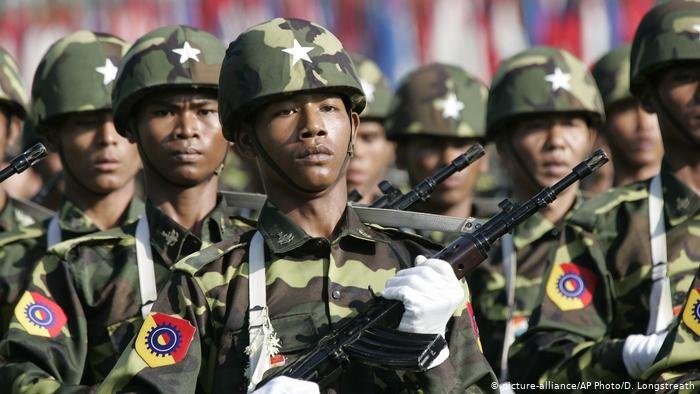
Military rule
Suu Kyi spent 15 of the 21 years between 1989 and 2010 under house arrest. After 1995, the rights advocate was barred from seeing her two sons and husband, Michael Aris, even after the latter was diagnosed with cancer.
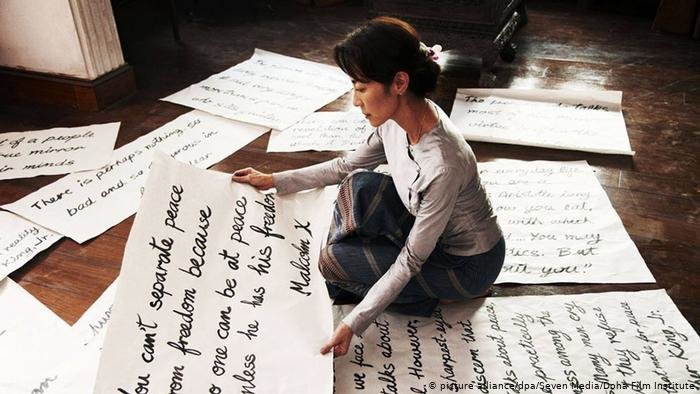
'The Lady'
Suu Kyi's determination to bring democracy and human rights to her country won her international renown, including the 1991 Nobel Peace Prize. She was so popular that in 2011 famous French director Luc Besson made a biopic of her life starring Michelle Yeoh. She was often called the world's most famous political prisoner.
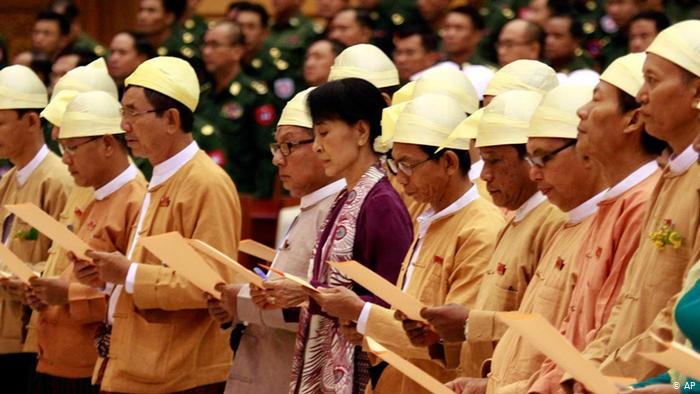
Sworn in as lawmaker
Decades of campaigning finally paid off and in 2012 Suu Kyi was allowed to run in free elections. She won a seat in parliament as Myanmar began its transition away from military government. Since general elections in 2015 she has been the country's de facto civilian leader, although officially she is the foreign minister and state counsellor under President Htin Kyaw.
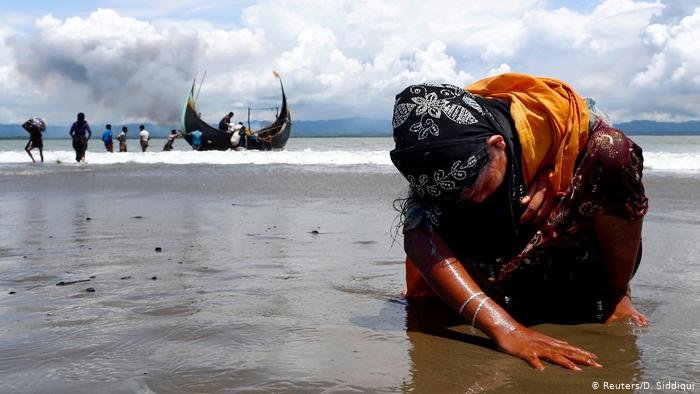
Persecution of the Rohingya
Rohingya are a mostly Muslim ethnic group who had their citizenship revoked by Myanmar's Buddhist-majority government in 1982. Long persecuted, their plight intensified in 2016 when the military began what it calls "clearance" of illegal immigrants - but what groups like Human Rights Watch have described as "ethnic cleansing." Thousands have died and hundreds of thousands have fled their homes.
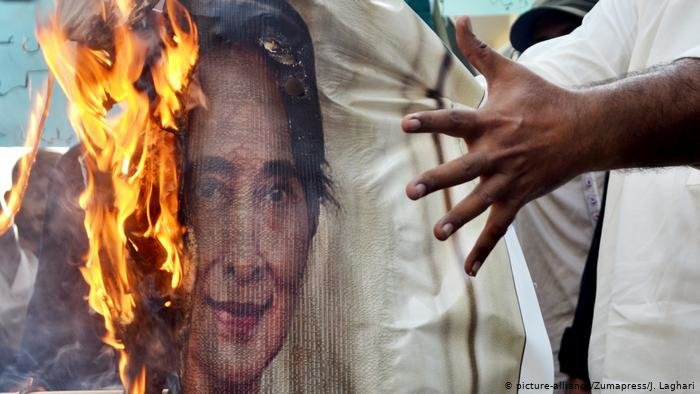
Fall from grace
When she became state counsellor in 2016, Suu Kyi set up a commission to investigate claims of atrocities against the Rohingya in Rakhine state. Suu Kyi has accused the Rohingya of spreading "a huge iceberg of misinformation," and that she is concerned by the "terrorist threat" posed by extremists. Her stance sparked protests in Muslim-majority countries around the world.

Nobel no more?
Suu Kyi has been stripped of various honors and lost much of her international support due to her handling of the Rohingya crisis. The Nobel committee was forced to issue a statement saying that her peace prize could not be revoked. Fellow Nobel laureate Malala Yousafzai called on Suu Kyi to "stop the violence." Suu Kyi has said that outsiders do not grasp the complexities of the situation.
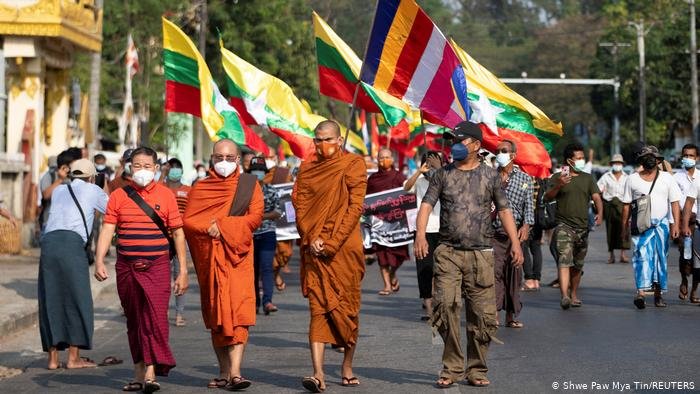
A controversial election
Myanmar's ruling National League for Democracy party won the November 8th general election, with enough seats to form the next government. However, the military's proxy party, the Union Solidrity and Development party, claimed fraud and demanded a new election supervised by the military. With that, came comments alluding to a possible coup. Supporters of the party also marched in protest.
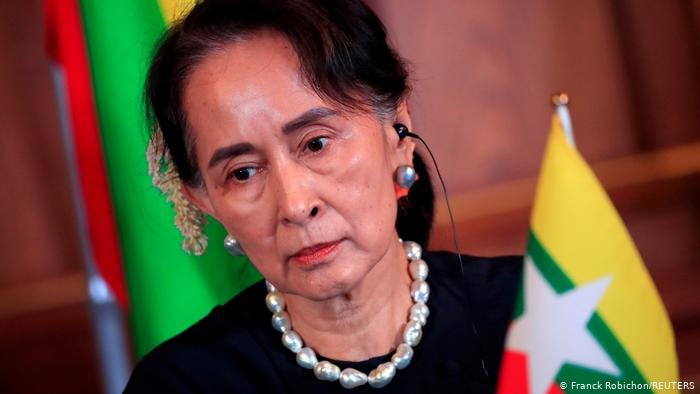
Tatmadaw detains Aung San Suu Kyi
The Myanmar leader and several of her political allies were detained in an early morning raid led by the military, in what the NLD party called an apparent coup. Hours later, state-run broadcaster MRTV said it was unable to broadcast due to technical issues. The move comes amid escalating tensions between the civilian government and army, which had been at the helm of governance for decades.










